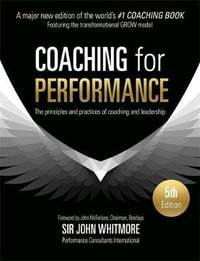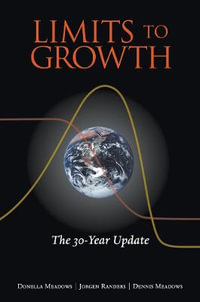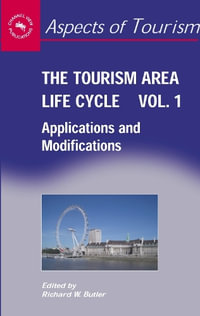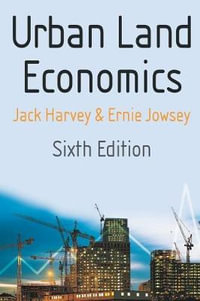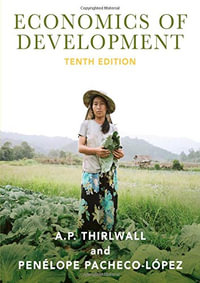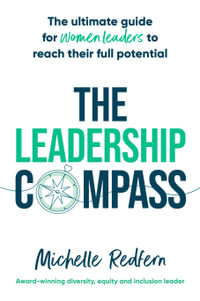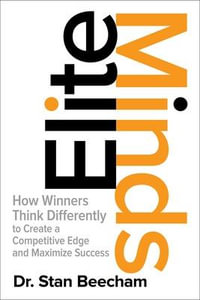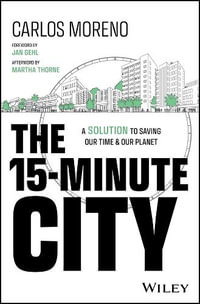Much of the discussion of Russia's recent post-Communist history has amounted, both in Russia and the West, to a series of monologues by strong-minded people with starkly divergent views. In contrast, Padma Desai's conversations with influential, intelligent participants and observers provide the reader with a broad, nuanced view of what has and has not happened in the last fourteen years, and why. Conversations from Russia will thus serve as a much-needed reference volume, both for academics who study Russia and for laypeople who only have vague perceptions of what has occurred in Russia since the collapse of Communism.
In conversations with important figures like Boris Yeltsin, George Soros, Anatoly Chubais, and Yegar Gaidar, Desai considers questions like why the Soviet Union fell apart under Gorbachev, what went wrong with economic reforms after Gorbachev, whether the privatization of Russian assets could have been managed differently, and what the prospects are for the Russian economy in the near future. Desai, a recognized expert in the field of Soviet studies, ties the interviews together with an introduction, ultimately reaching her own judgment on each issue considered in the conversations. This book will appeal to researchers and students in developmental economics, political economy, and Soviet studies, and educated laypeople interested in Russia.
Industry Reviews
"Russia specialist Desai talked to just about every major figure in the country's transition from communism to managed capitalism. What she heard is revealing, disturbing and ultimately encouraging."--Financial Times, announcing it as a 2006 Pick of the Year
"Padma Desai uses her deep knowledge of Russia and her interviews with many of the most influential players to provide a characteristically balanced, lucid and insightful analysis of the successes and failures of the post-Soviet transition. The message, in the end, is one of qualified optimism. Much has gone wrong. But much has also changed for the better. Russia is on a long journey towards becoming a "normal country". But it has at least started."
---Martin Wolf, Chief Economics Commentator and Associate Editor, Financial Times
"Conversations on Russia provides a much-needed service for those interested in Russia's progress, or lack thereof, since the collapse of Communism in 1991. Too much of the discussion of Russia's recent history has amounted, both in Russia and the West, to a series of monologues by strong-minded people with starkly divergent views. Padma Desai's interviews with knowledgeable, influential participants in and observers of Russia's transition amounts, on the
contrary, to a multi-sided conversation which leaves readers with a broad, nuanced view of what has happened, what has not happened, and why." ---William Taubman, Bertrand Snell Professor of Political
Science, Amherst College and winner of 2004 Pulitzer Prize for biography: Khrushchev: The Man and His Era
"Economists usually try to understand the evolution of policy and its impact by specifying policy actions and attempting to model their consequences. That is indeed a valuable approach. But there are other and complementary ways of trying to understand what happened in the past and what might happen next. This book represents an imaginative and creative alternative approach; namely to ask key policy makers what they had in mind and their own
understanding of events. And the issues at hand are the extraordinary events in Russia over the last 15 years. The discussions with the most influential policy makers and reformers of the period are riveting and the
approach gives crucial insights, especially as Padma Desai relates their own interpretations to events, history and ideas in a very thoughtful way. This is an important and fascinating book." ---Sir Nicholas Stern, Head of UK Government Economic Service, and former Chief Economist and Senior Vice President, The World Bank
"Padma Desai's "Conversations on Russia: Reform from Yeltsin to Putin" is a major contribution to our understanding of Russia's transition from Communism. Through extremely lively interviews with virtually all the major players involved in Russia's uncharted reform journey, Padma Desai has given the specialist and lay person remarkable insights to the policy choices those major players faced, and why things progressed as they did. Most important,
the interviews help us better understand the challenges Vladimir Putin will continue to confront in trying to hold together a multinational federation of special interests and the dilemmas the international
community faces as it develops economic and political ties with post-Soviet Russia." ---Ronald D. Liebowitz, President, Middlebury College
"Fascinating. The concept of 'conversations' gives it a potentially wider appeal than the usual specialists's book; yet it has the potential to be a landmark in scholarship on Russia. It will advance our understanding of that country's historic transformation from Communism to managed capitalism. There are few better qualified to chart the economic and political history of the period than Padma Desai."--Stephen Handelman, author of Comrade Criminal: Theft
of the Second Russian Revolution
"Russia specialist Desai talked to just about every major figure in the country's transition from communism to managed capitalism. What she heard is revealing, disturbing and ultimately encouraging."--Financial Times, announcing it as a 2006 Pick of the Year
"Padma Desai's Conversations on Russia: Reform from Yeltsin to Putin is a major contribution to our understanding of Russia's transition from Communism. Through extremely lively interviews with virtually all the major players involved in Russia's uncharted reform journey, Padma Desai has given the specialist and lay person remarkable insights to the policy choices those major players faced, and why things progressed as they did. Most important, the
interviews help us better understand the challenges Vladimir Putin will continue to confront in trying to hold together a multinational federation of special interests and the dilemmas the international community
faces as it develops economic and political ties with post-Soviet Russia." --Ronald D. Liebowitz, President, Middlebury College
"Economists usually try to understand the evolution of policy and its impact by specifying policy actions and attempting to model their consequences. That is indeed a valuable approach. But there are other and complementary ways of trying to understand what happened in the past and what might happen next. This book represents an imaginative and creative alternative approach; namely to ask key policy makers what they had in mind and their own understanding of
events. And the issues at hand are the extraordinary events in Russia over the last 15 years. The discussions with the most influential policy makers and reformers of the period are riveting and the
approach gives crucial insights, especially as Padma Desai relates their own interpretations to events, history and ideas in a very thoughtful way. This is an important and fascinating book."--Sir Nicholas Stern, Head of UK Government Economic Service, and former Chief Economist and Senior Vice President, The World Bank
"Conversations on Russia provides a much-needed service for those interested in Russia's progress, or lack thereof, since the collapse of Communism in 1991. Too much of the discussion of Russia's recent history has amounted, both in Russia and the West, to a series of monologues by strong-minded people with starkly divergent views. Padma Desai's interviews with knowledgeable, influential participants in and observers of Russia's transition amounts, on
the contrary, to a multi-sided conversation which leaves readers with a broad, nuanced view of what has happened, what has not happened, and why."--William Taubman, Bertrand Snell Professor of Political
Science, Amherst College and winner of 2004 Pulitzer Prize for biography: Khrushchev: The Man and His Era
"Padma Desai uses her deep knowledge of Russia and her interviews with many of the most influential players to provide a characteristically balanced, lucid and insightful analysis of the successes and failures of the post-Soviet transition. The message, in the end, is one of qualified optimism. Much has gone wrong. But much has also changed for the better. Russia is on a long journey towards becoming a 'normal country'. But it has at least started."--Martin
Wolf, Chief Economics Commentator and Associate Editor, Financial Times
"Fascinating. The concept of 'conversations' gives it a potentially wider appeal than the usual specialists's book; yet it has the potential to be a landmark in scholarship on Russia. It will advance our understanding of that country's historic transformation from Communism to managed capitalism. There are few better qualified to chart the economic and political history of the period than Padma Desai."--Stephen Handelman, author of Comrade Criminal: Theft
of the Second Russian Revolution
"Informative...It will be of greatest interest to those familiar with the events and characters in question."--Foreign Affairs







